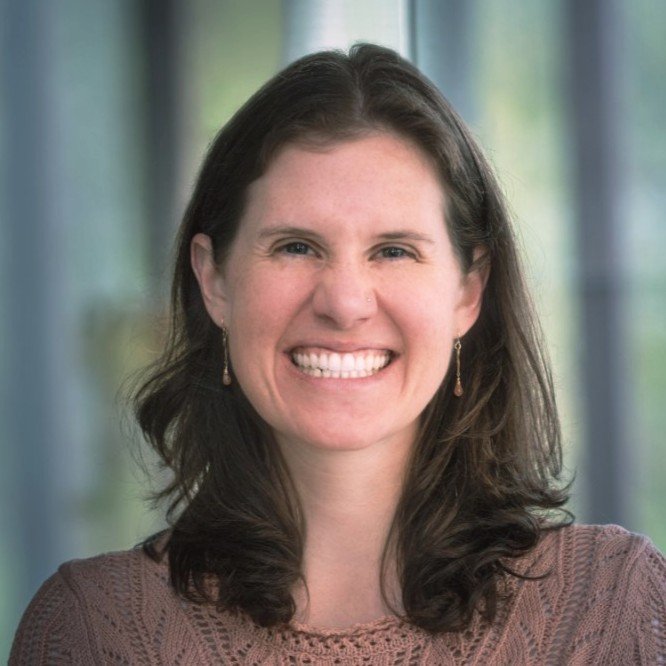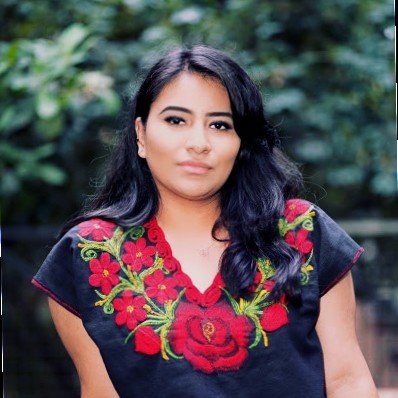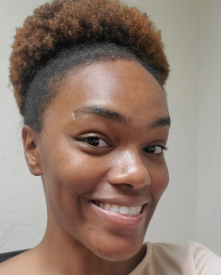Sabrina Roach
Principal and Founder, Make Digital Equity, LLC
Interview by Dilara Kal & Li Tang
November 10, 2022
Sabrina Roach has been working on Digital Equity issues in Washington State for more than 15 years. Through non-profit roles and industry roles, her through line as been empowering the vision and voice of grassroots work on equity issues. In our interview, we learned about Sabrina’s views on Digital Equity and what she is looking to do to further spread awareness related to this field. Roach is based in Burien, WA.
Q: What is your definition of Digital Equity?
SR: My definition of Digital Equity evolves all the time. Together, we’re building belonging. We’re building structures for community care. We have a right to communicate in the technology of our day.
Q: What motivates you? What are you passionate about in this space?
SR: I’m passionate about making new friends and keeping the old. Brilliant people have been doing this work for years. Thousands of new ones have felt the urgency and found ways to add to the work. It’s a big lift, but a little bit at a time we’re collectively making impact.
Q. What values and/or principles are important for everyone in this space to do good work?
SR: A good faith effort is what’s needed. We’re all starting in different places in our knowledge of how to do this work and where to do this work. So I really enjoy working with peers who are game to be generous with their information and gracious, but also talk with each other when they see something is not a good fit or is going sideways.
It’s about working with people who approach the work with a good faith effort because we’re all going to make mistakes but people who approach something with a good faith effort, the intent is to do positive productive work. I think when it comes to meeting people where they're at, that's more of a dynamic when we're talking about working in a community. Like working with folks in community. When it comes to peers that I work with (of seasoned Digital Equity practitioners), I think it’s yes, it’s about meeting them where they are at , but also there needs to be a mutual respect of a good faith effort. That is an important value to bring to the work.
“Together, we’re building belonging.”
Q. What have been big wins for you and how did they happen?
SR: Well, a big win for our developing field in Washington State was House Bill 1723: The Digital Equity Act for Washington State. That took a couple of years of building awareness , education, that we needed to invest in this. Sadly, it took the pandemic to show digital divides to the larger world. Among several state legislators who led the charge, Representative Mia Gregerson of the Washington State House Legislature played an especially critical role in getting the bill passed.
Q. What does House Bill 1723 actually entail?
SR: House Bill 1723 created state mechanisms for receiving, funding and distributing funding for broadband infrastructure, digitial literacy trainings and other measures for closing the digital divide. An important feature of the bill was a focus on supporting community based solutions, some that are produced by larger non-profits like Goodwill, some by smaller less well known community groups. So that’s a pretty good range of different solutions that can lead to improving Digital Equity. The Legislature also made provisions for learning and planning about Digital Equity across the state. For example, they made the Digital Equity Forum part of the statute so that it has a budget and continues when it gets going again. Such learning and planning venues are important to build informed leadership and strong plans across the state.
Q: What steps are being made by your organization to reach that vision?
SR: We’ve gotten past the worst of the pandemic—hopefully that’s the worst of it—where we were able to build something quickly across the state to address a profound and immediate need around Digital Equity. My work during that phase was connecting people, drawing them into the work, and expanding the resources for the work.
On HB 1723, I worked to amplify the leadership of others by asking them to tell their stories so that legislators could connect to the experience of Washingtonians who were furthest from digital equity. In January 2020, before the pandemic had come to the United States significantly, Representative Gregerson and I worked on the first version of the Digital Equity Act and it got some attention, but it it didn't pass. It was a different experience during the pandemic in the winter and spring of 2022. At that point we were able to pass HB 1723 the Washington State Digital Equity Act. So there was a lot more attention on it.
I have many more people to organize with now. There are great opportunities to highlight the leadership of other people. My leadership style is to lead from behind. More people have shown up to do organizing during the pandemic. It’s exciting to highlight more leadership with this project, Dear Digital Equity.
Q. What’s an example of some good work so far and who’s been doing it? Who would you like to give a shout-out to?
SR: I’m excited by the work that Goodwill has been doing and the work that Marisol Tapia Hopper has been doing at the Workforce Development Council of Seattle- King County. Tapia Hopper is a great example of how staff at a local county agency can provide great practical value to on-the-ground Digital Equity interventions by identifying information and resources from national groups like the National Skills Coalition and the Migration Policy Institute , contextualizing those resources and tailoring them for local use. She's been really good at incorporating the best available national resources into what we do locally and sharing back our results to Digital Equity practitioners working nationally as well as to others doing workforce development around Washington State. She's helped to figure out structural ways to help Workforce Development Council’s pivot so that they are can more adeptly incorporate digital equity work into their offerings. For example, by including questions on the intake forms for those seeking jobs or job training skills that touch on access to devices, access to high-speed Internet, WDC’s can now more holistically address the challenges job seekers are facing these days. During her time at the Workforce Development Council, Tapia Hopper has innovated a number of such changes to WDC processes that are measurable improvements and useful to a lot of people. And that's a big deal. She's able to do the work with a real sense of grace and inclusion.
Connect with Sabrina on LinkedIn.





